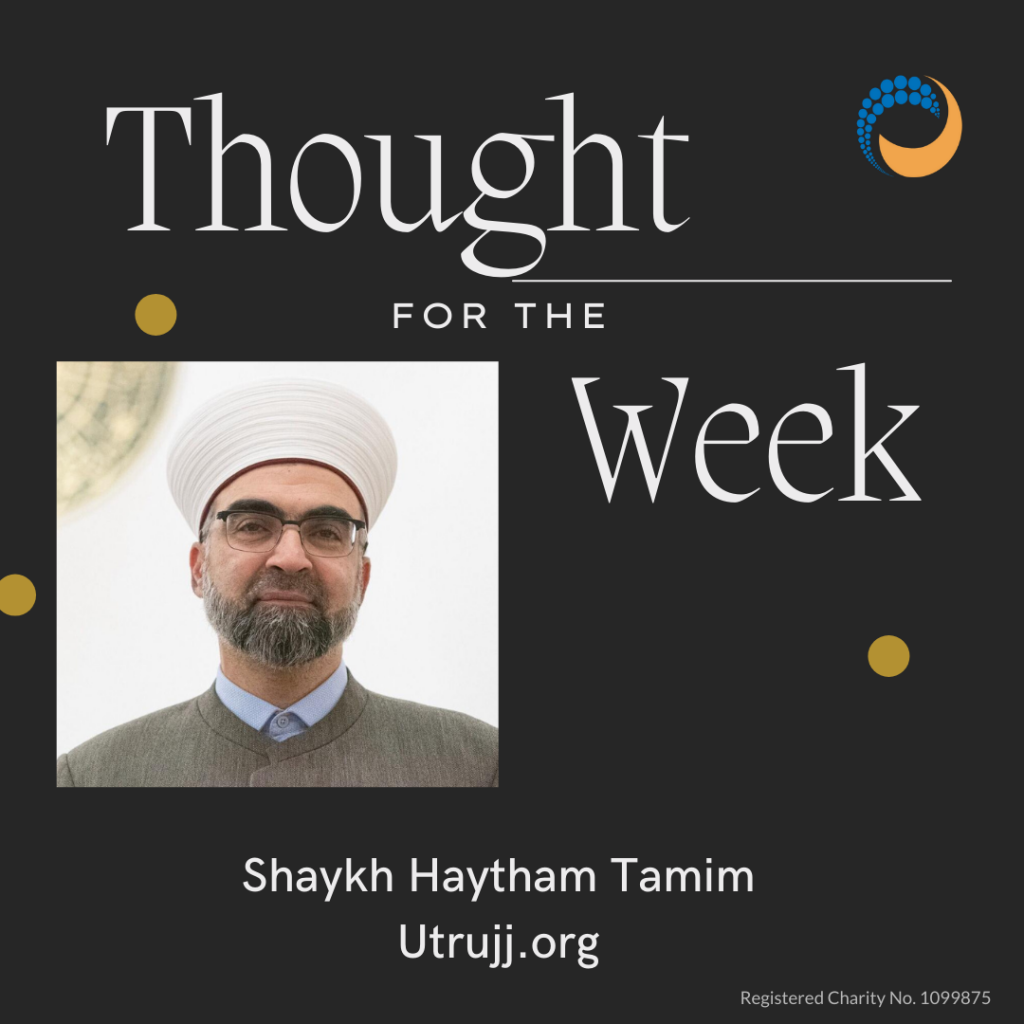How to turn an ordinary fast, into a super-fast

The aim of fasting is to achieve righteousness
Allah Almighty said in Surat al Baqarah:
يَـٰٓأَيُّهَا ٱلَّذِينَ ءَامَنُواْ كُتِبَ عَلَيۡكُمُ ٱلصِّيَامُ كَمَا كُتِبَ عَلَى ٱلَّذِينَ مِن قَبۡلِكُمۡ لَعَلَّكُمۡ تَتَّقُونَ
O you who have believed, decreed upon you is fasting as it was decreed upon those before you that you may become righteous – [2:183]
Alhamdulillah, we are fortunate to witness another Ramadan. Many did not get this chance and left us before Ramadan, however Allah granted us the favour to live to witness another Ramadan. It is a great gift that He has offered us the opportunity to grow closer to Him and excel and improve ourselves this month.
When we read the verses regarding fasting in the Quran (2:183-187), Allah Almighty told us the aim of fasting – to become righteous. How do we achieve this?
How to achieve righteousness
We achieve righteousness through the pillars of Islam and then the bonus of the Sunnah. When we perform our fard prayer, we gain righteousness, and in addition we have the Sunnah before and after. Salah has a different flavour to fasting. Allah has made fasting obligatory in the month of Ramadan. Outside of Ramadan we can choose to fast on on Monday and Thursday and the white days (13th,14th,15th of the month) as per the Sunnah. Zakat is compulsory, in addition to zakat we can give charity. These different forms of worship are means of becoming righteous. We have the obligatory and the optional extras.
The reason behind different forms of worship
Each one has a different dimension. Zakah, for instance, prevents us from being miserly. Salah is a purification for the soul, body and mind, and it is like bathing in a river five times a day, purifying the body, heart and mind and deleted the sins.
عن أبي هريرة رضي الله تعالى عنه قال: قَالَ رَسُولُ اللَّهِ صَلَّى اللَّهُ عَلَيْهِ وَسَلَّمَ: ” أَرَأَيْتُمْ لَوْ أَنَّ نَهْرًا بِبَابِ أَحَدِكُمْ يَغْتَسِلُ فِيهِ كُلَّ يَوْمٍ خَمْسًا هَلْ يَبْقَى مِنْ دَرَنِهِ شَيْءٌ؟ قَالُوا: لَا يَبْقَى مِنْ دَرَنِهِ شَيْءٌ. قَالَ: فَذَلِكَ مَثَلُ الصَّلَوَاتِ الْخَمْسِ يَمْحُو اللَّهُ بِهِنَّ الْخَطَايَا ” متفق عليه.
Abu Hurayrah reported that the Messenger of Allah (peace be upon him) said:
“Tell me, if there were a river at the door of one of you in which he washed five times daily, would any of his filthiness remain?” When he received the reply that none of it would remain, he said, “That is like the five times of prayer by which God obliterates sins.” (Bukhari and Muslim.)
Meanwhile, fasting is likened to a shield (junna):
عَنْ أَبِي هُرَيْرَةَ، أَنَّ رَسُولَ اللَّهِ صلى الله عليه وسلم قَالَ “ الصِّيَامُ جُنَّةٌ فَإِذَا كَانَ أَحَدُكُمْ صَائِمًا فَلاَ يَرْفُثْ وَلاَ يَجْهَلْ فَإِنِ امْرُؤٌ قَاتَلَهُ أَوْ شَاتَمَهُ فَلْيَقُلْ إِنِّي صَائِمٌ إِنِّي صَائِمٌ ” .الموطأ.
Abu Hurayrah (may Allah be pleased with him) that the Messenger of Allah (peace be upon him) said:
“Fasting is a shield for you, so when you are fasting, do not behave obscenely or foolishly, and if anyone argues with you or abuses you, say, ‘I am fasting. I am fasting.’ ” [Muwatta’]
The shield protects you against your enemy on the battlefield. Similarly, fasting is a shield.
عَنْ أَبِي سَعِيدٍ الْخُدْرِيِّ قَالَ : سَمِعْتُ النَّبِيَّ يَقُولُ : ” مَنْ صَامَ يَوْمًا فِي سَبِيلِ اللَّهِ ، بَعَّدَ اللَّهُ وَجْهَهُ عَنْ النَّارِ سَبْعِينَ خَرِيفًا”. متفق عليه.
Abu Sa‘id al-Khudri (may Allah be pleased with him) reported God’s Messenger (peace be upon him) as saying:
“If anyone fasts for a day for the sake of Allah, Allah will remove him seventy years’ distance from hell.” [Bukhari and Muslim]
In this narration, we see again that fasting is a form of protection, which distances you from hellfire by seventy years distance.
When we read through the Sunnah, Allah Almighty says in the Hadith Qudsi: ‘Fasting is for Me’ and therefore He rewards it Himself, because the one who fasted left his desires for the sake of Allah.
كُلُّ عَمَلِ ابْنِ آدَمَ يُضَاعَفُ، الحَسَنَةُ عَشْرُ أَمْثَالِهَا، إلى سَبْع مِئَة ضِعْفٍ، قالَ اللَّهُ عَزَّ وَجَلَّ: إلَّا الصَّوْمَ؛ فإنَّه لي، وَأَنَا أَجْزِي به، يَدَعُ شَهْوَتَهُ وَطَعَامَهُ مِن أَجْلِي. لِلصَّائِمِ فَرْحَتَانِ: فَرْحَةٌ عِنْدَ فِطْرِهِ، وَفَرْحَةٌ عِنْدَ لِقَاءِ رَبِّهِ. وَلَخُلُوفُ فيه أَطْيَبُ عِنْدَ اللهِ مِن رِيحِ المِسْكِ.
Abu Hurayrah (may Allah be pleased with him) reported God’s Messenger (peace be upon him) as saying:
“Every [good] deed a son of Adam does will be multiplied, a good deed receiving a tenfold to seven hundredfold reward. God has said, ‘With the exception of fasting, for it is done for my sake and I give a reward for it. One abandons his passion and his food for my sake. The one who fasts has two occasions of joy, one when he breaks his fast and one when he meets his Lord. The bad breath of one who fasts is sweeter to God than the fragrance of musk. Fasting is a protection, [i.e. from acts of disobedience in this world and from hell in the next. Pt. vi.] and when the day of the fast of any of you comes he must not use vile language or raise his voice, and if anyone reviles him or tries to fight with him he should tell him he is fasting.” [Bukhari and Muslim]
Fasting trains us to have control over desire and food and drink and elevates us to the status of angels who have no desire and do not consume food or drink. Therefore, if we fast properly and in accordance with the Sunnah, we are elevated to the status of angels.
Damaging the shield
وَعَنْ أَبِي عُبَيْدَةَ قَالَ : سَمِعْتُ رَسُولَ اللَّهِ يَقُولُ :” الصَّوْمُ جُنَّةٌ مَا لَمْ يَخْرِقْهَا “؛النسائي.
In another narration, Abu ‘Ubaidah (may Allah be pleased with him) said:
“I heard the Messenger of Allah say: ‘Fasting is a shield, so long as you do not damage it.”‘ [Nasa’i]
This means that the shield of fasting can be damaged. For instance, backbiting makes holes in the shield, then the shield will not protect you as much.
Fasting is not just refraining from food and drink, but also controlling the tongue and eyes and ears. If you are fasting, let your tongue fast with you, let your eyes fast with you and let your limbs fast with you, otherwise it is just an exercise in losing weight.
Ramadan is therefore a month of developing self-discipline. If someone provokes you, you have to control yourself from responding back in a rude way, you have to avoid obscene language or insulting others. It is an exercise in self-control. The Prophet (peace be upon him) was educating us to be people of righteousness.
It does not mean we let people abuse us while we are fasting, but that we do not engage in arguments. Keep your shield polished and do not let it get damaged. Then you will be elevated in Ramadan and outside Ramadan inshallah.
Ramadan is not just abstention from dawn until dusk, it is about increasing the presence of Allah in our life. When we are praying and fasting we have double levels of attendance with Allah. When we improve the quality of our salah and fasting, Allah Almighty gives us extra levels.
How to elevate yourself by fasting
We have been given the chance to elevate our self and become a better person – in our relationship with Allah as well as our spouse, parents, colleagues and family. We have thirty days to improve our character and control our temper and our gaze and our speech. Fasting helps us achieve this.
Scientifically in order to kick a bad habit, we have to change our pattern for 25-30 days. Ramadan is that window. It enables us to get rid of bad habits, giving us the shield against shaytan, which enables us to get control back over our desires.
The reward of fasting is not feasting at Iftaar time, it is beyond our imagination. This is why Allah rewards it Himself.
Ghazali mentioned that fasting is of three levels: general public, who only refrain from eating and drinking and sexual desire, the next level is protecting your heart from any distractions that take you away from Allah, and the highest level is when refrain from what displeases Allah, and you do not break your fast until you meet Allah.
We may be far from this level but we can aim for the highest level. This will be a new target for us this Ramadan, as we do not know if we will live to witness another Ramadan.
Have a wird
A wird is worship that you repeat on a daily basis. Reciting the Quran should be part of your daily practice in Ramadan and we should try to read one chapter a day or as much as we can. For those who are not praying regularly, they should make the intention to pray their five salah from today. When you make this intention Allah will give you the energy to do it. For those who have any issues with their parents, they should fix this during Ramadan, as you may not live to seek their forgiveness. If you want Allah to forgive you, then fix your relationship with your parents. If your worship is sub-par, inconsistent and patchy, then its time to fix it. Press the on-switch. This is the right time – purify your intention, Allah will give you the boost you need in Ramadan. Take a step towards Him, He is nearer than you imagine. Seize this opportunity to be close to Him. He is waiting for us to call Him, and we have plenty we want to ask Him for.
May Allah Almighty grant us a blessed Ramadan. Ameen
Khutbah Shaykh Haytham Tamim 17th March 2023.
Related posts
FASTING
Does an injection or inhaler invalidate my fast?
When do you have to make the intention to fast?
How much is fidya and kaffarah?
TARAWIH & SALAH
Is it permissible to pray tarawih online
Can you hold the mushaf while praying?
How many rakahs should I pray for Tarawih?
What’s wrong with a super speedy tarawih?
How do you perform witr?
Should I recite the Fatiha behind the imam?
How do you perform sujud al sahw
Do you have to make up a missed salah?
What is the significance of the ayatul kursi?
What is the significance of the Darood?
What is the significance of the atahiyat in the salah?
RECITING THE QURAN
Why is the Quran transformative?
How do you perform Sajda Tilawah?
How important is it to fix your tajweed?
DUA
Why should I keep making dua?
- The truth is more powerful than lies
- Does a bride’s wali have to be Muslim?
- Is is permissible to lead a salah split over different rooms?
- Global IT outage. When systems go down…
- The concept of worship. What are ibadah and ihsan – and how do they lead to self development?

Recommended Posts

The truth is more powerful than lies
July 26, 2024

Global IT outage. When systems go down…
July 19, 2024

